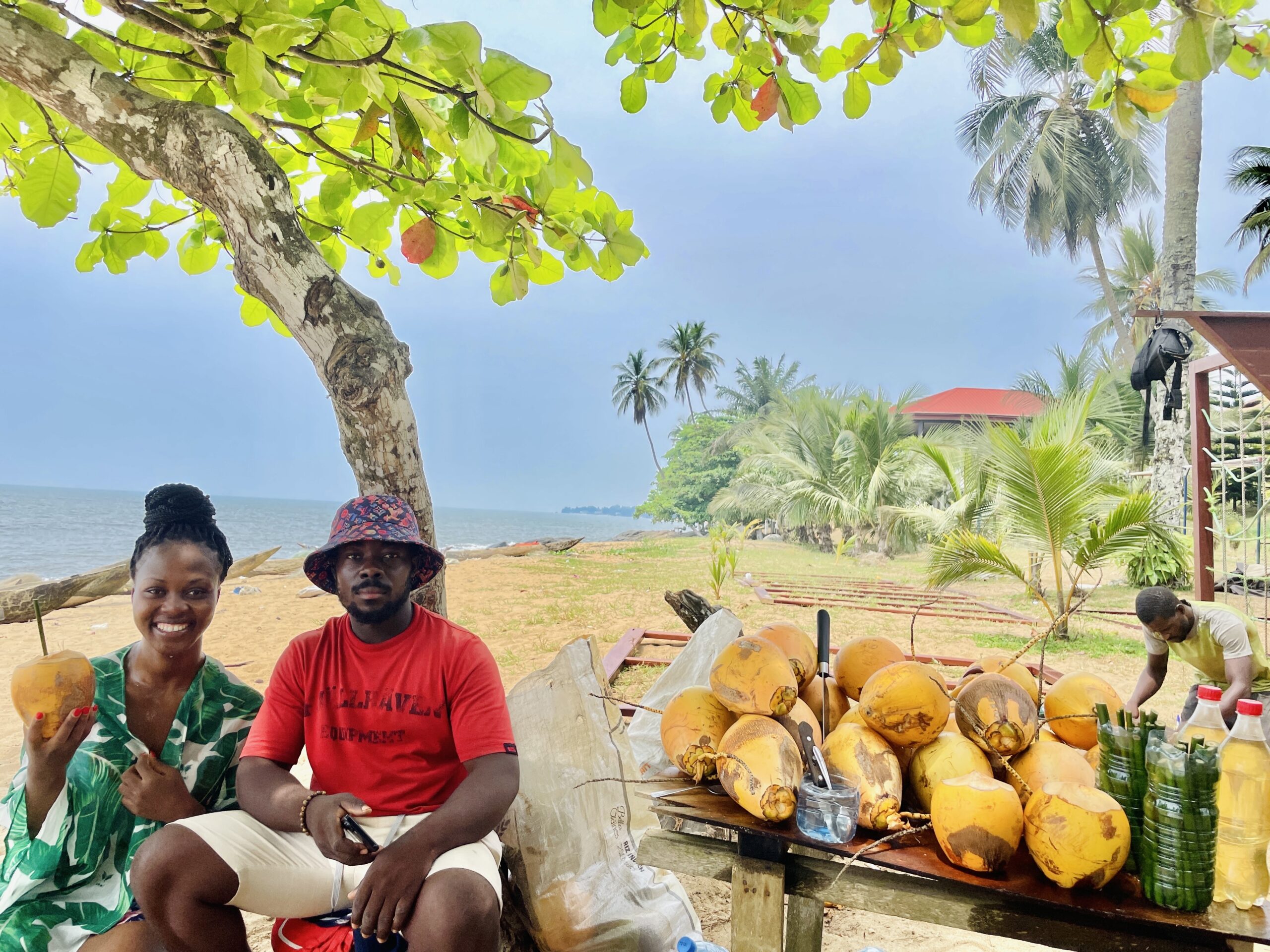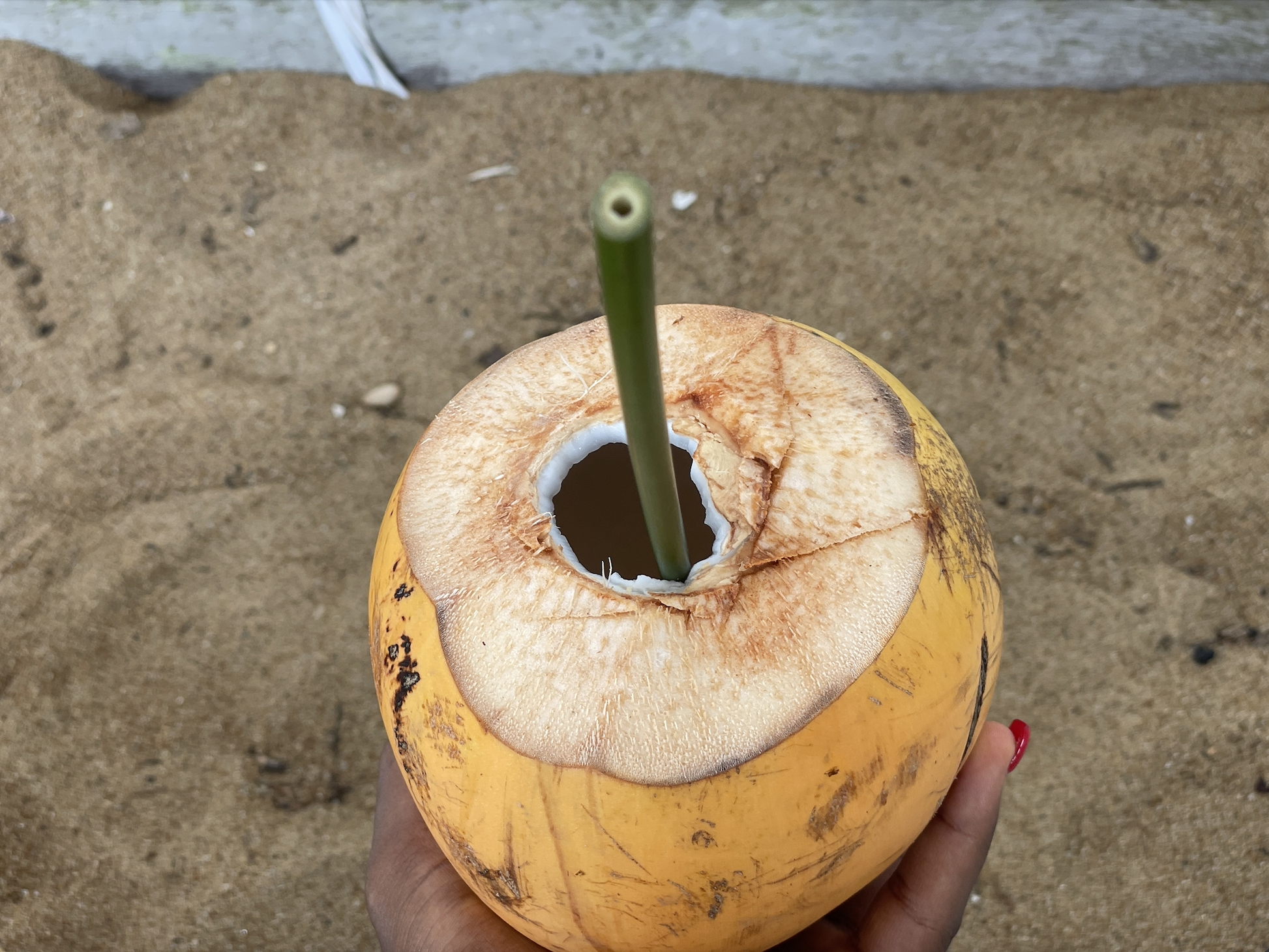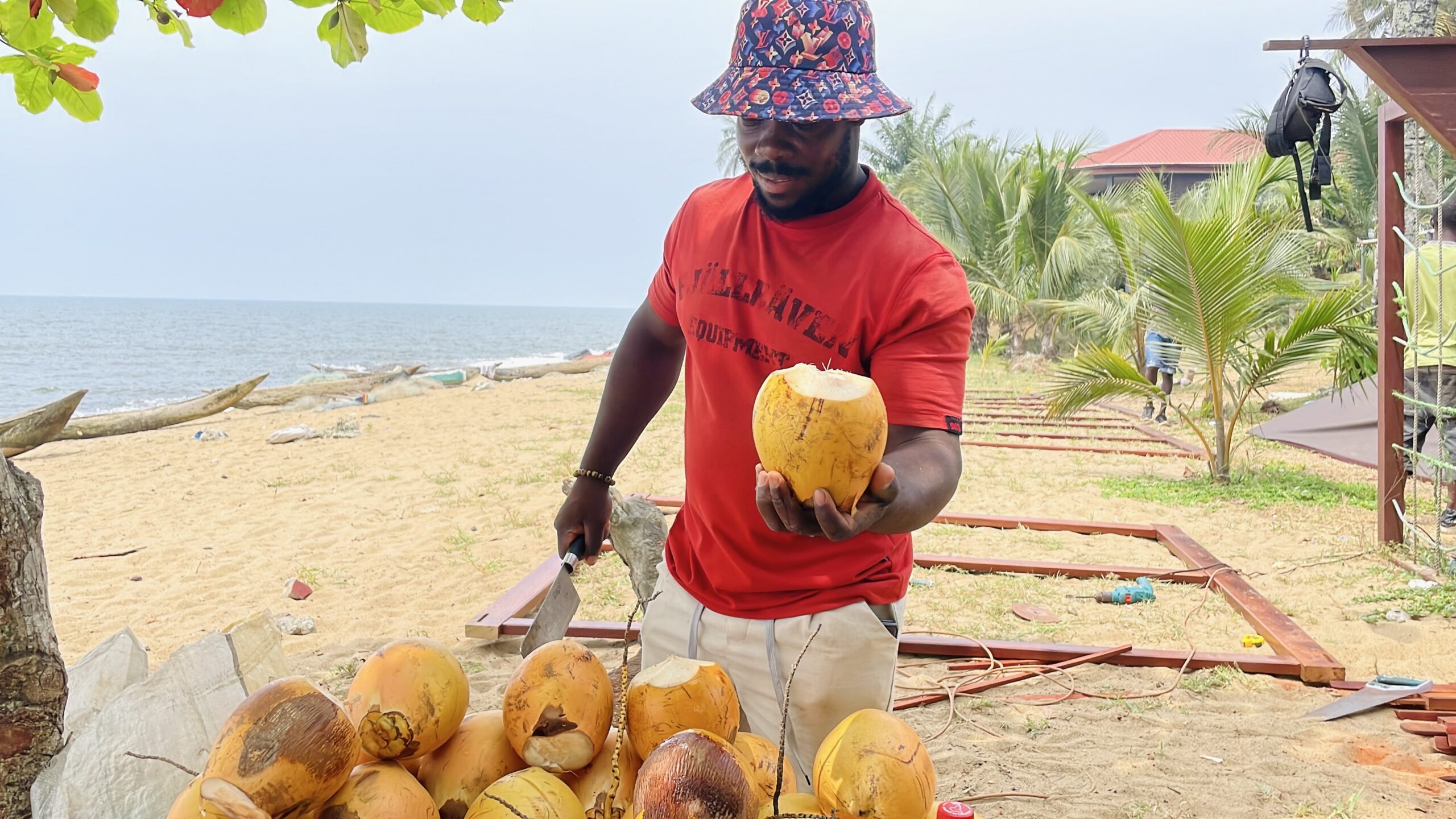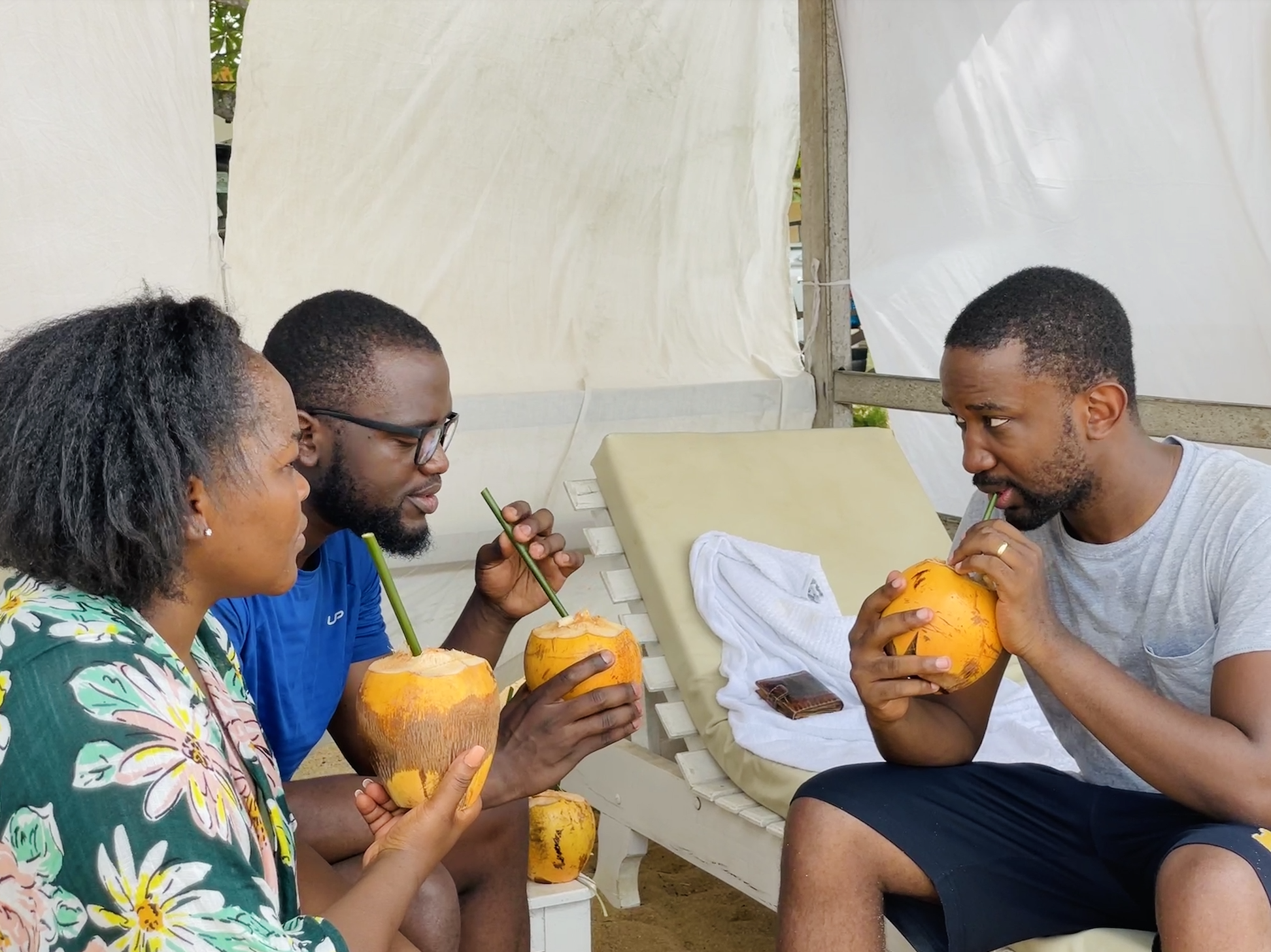
Courtesy of Beverly Ndifoin

Courtesy of Beverly Ndifoin
On a hot salty afternoon on a beautiful beach in Kribi, Cameroon, a man hands me a big yellow coconut. I take a sip of the delicious sweet nectar of the coconut water and I am immediately refreshed. But as I look closer, I notice the unusual green straw. It is not brightly colored like the plastic straws that we have sadly become accustomed to. This straw is made from bamboo. It is an innovation with potential to address the scourge of plastic straws that is ravaging our marine systems.
In America alone, about 500 million plastic straws are used daily, enough to fill over 46,400 large school buses per year. Most of these straws cannot be reused or recycled and are not biodegradable either. Often, they make their way into the ocean and waterways where sea turtles, albatross, fish and other aquatic life are threatened as they sometimes mistake these for food. One man on one of the beaches of Kribi offers a potential solution to this problem.
In front of a mound of yellow coconuts, Moumboko Jacques Salvador serves fresh coconut water to customers who come to the Kribi beach, and states that, “For about a year now, I have been serving coconut water in natural straws which I produce from bamboo trees I grow in my backyard.”

Formally working as a chef at the Ilomba Hotel in the South Region of Cameroon, Salvador’s career seemed to be advancing smoothly until health complications kicked in. Confronted with occupational health challenges, he was forced to leave his job and became worried about how he would make an income. Fortunately, he found an opportunity to create a business at the hotel selling fresh coconuts to hotel guests on the beach.
Initially, Salvador (affectionately called Jacques Coco by his customers) served his refreshing coconuts in plastic straws like every other vendor but he quickly discovered a major problem with this. He saw that the beach was laced with plastic straws which were discarded after clients consumed their drinks. They washed out into the oceans and littered the scenic beaches. He also observed that some customers complained about the unnatural taste of the natural coconut water when consumed through plastic straws.
Prompted by these environmental and customer satisfaction challenges, Salvador was determined to find a nature-based solution to both of these challenges. That was when he came up with the solution right in his backyard.
By serving the coconut water in the coconut shell itself, combined with bamboo made straws, Salvador hopes to draw his customers closer to the feel of natural products.
“On average, I serve 30 coconuts a day,” said Salvador, who also estimated that he has avoided about 10,000 plastic straws over the past year, which would otherwise have likely ended up in the ocean or landfills.

Globally, discourse on the dangers of our overreliance on plastic straws is growing. Several cities and countries have already taken active steps to ban plastic straws. These include New York City, California, Miami Beach, Great Britain, Scotland and Taiwan. Some organizations like McDonalds (UK), the Art Institute of Chicago and members of the Association of Zoos and Aquariums have also abolished their use.
Other institutions and organizations can follow suit with similar policies and perhaps adopt more sustainable and environmentally friendly solutions like the bamboo straws Salvador uses, which he says are “in high demand as I often get commands to produce these straws in bulk for customers traveling abroad.”
Individuals can also take active steps to eliminate plastic straws. To further curb the reliance on single-use plastics throughout the supply chain, the “Be Straw Free” campaign founded by student activist Milo Cress, persuades restaurants to offer straws optionally rather than automatically and encourages consumers to enjoy beverages without straws at all. The Ocean Conservancy also advocates for limiting our straw usage, while Vice President of the United States, Kamala Harris, has suggested that plastic straws be completely banned and the production of innovative and eco-friendly straws encouraged.
One of Salvador’s clients at the beach, who is also a trained medical doctor, Dr. Olga Djoutsop, says, “I am really impressed to see bamboo straws and to use it for the first time. In my opinion, bamboo straws are better than plastic straws. From the health point of view, bamboo straws are healthy, antibacterial, and chemical free compared to plastic straws, and do not need any treatment except drilling to be transformed into straws.”

From an economic standpoint, Dr. Djoutsop thinks that, “bamboo-made straws are less expensive to make, durable and can be reused several times or recycled, and from an environmental perspective, it is biodegradable and therefore reduces the amount of waste and plastic that pollutes our environment.”
In its 21 Issues for the 21st century, the United Nations Environment Program Foresight Reports says that to address emerging cross-cutting environmental issues such as water, waste and climate change, there is need for both better environmental governance and human behavioral change towards the environment.
With firm policies, every bar, restaurant, beach hotel in the world in a few years could be using bamboo or other biodegradable alternatives to plastic straws and plastic straws will hopefully be a thing of the past. The next time you order that delicious cocktail at the bar or at a fast food restaurant, consider how your decision to use a plastic straw could be affecting the biodiversity of our oceans and world.